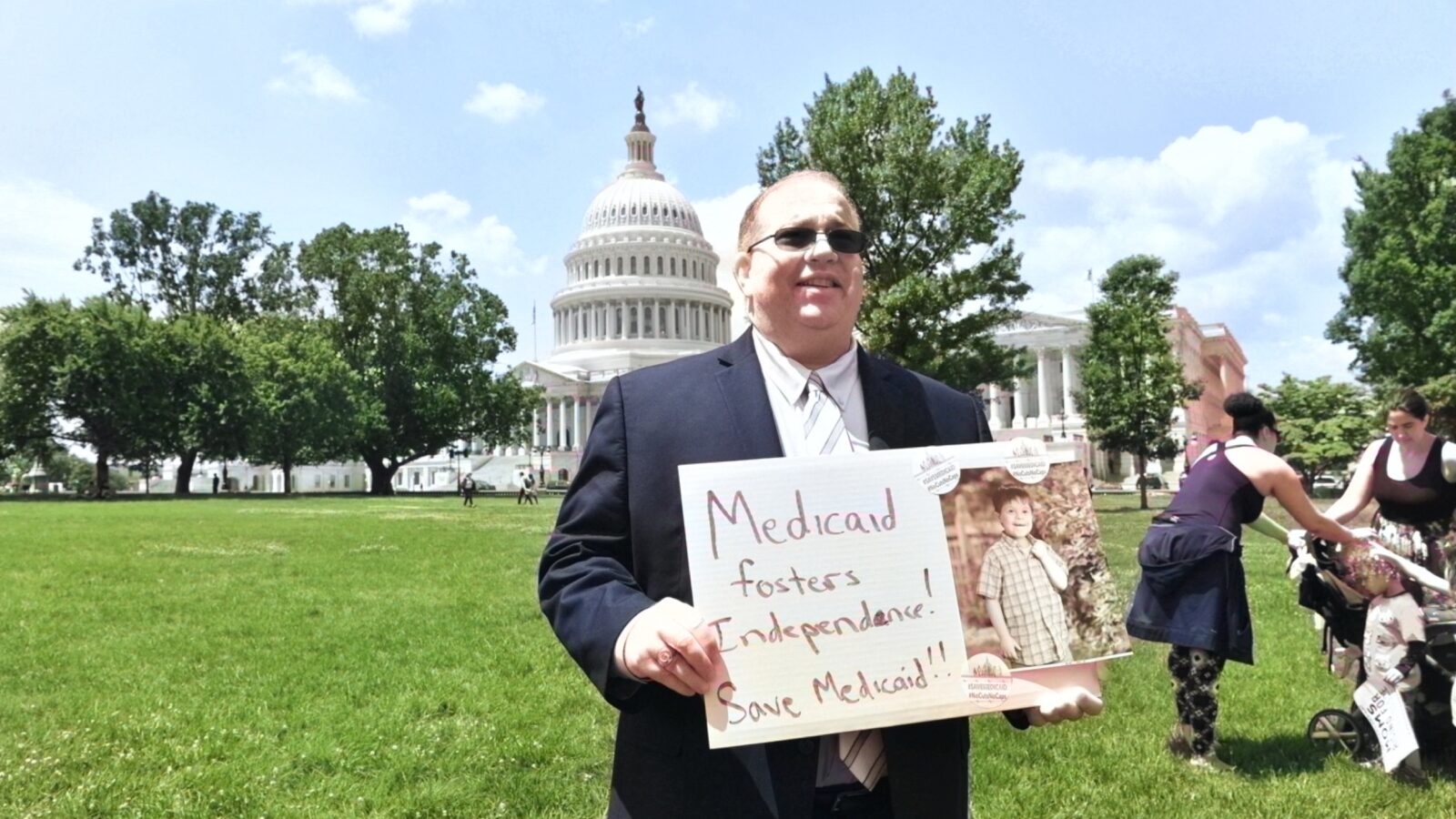These are dark days for anyone caught up in the social care, benefits or healthcare systems in the UK.
Years of cuts have taken an enormous toll, while the cost of living and overstretched social care provision have seen financial hardship rise and access to support plummet.
Multiple charities highlight how people are being forced to pay for their own soaring care charges, putting ever greater strain on their already meagre finances.
Over in the US, advocates and campaigners, much like their British counterparts, are in a perpetual battle to secure people the support they need, when they need it and with community inclusion as a bedrock, not an add-on.
Insurance for support in the US
Medicaid, a US government-funded insurance programme, covers healthcare and community assistance for a range of people including millions of disabled adults and children.
Its introduction in 1965 was a pivotal moment in the decades-long shift from institutionalised care.
In total, around 87 million Americans were in receipt of Medicaid as of April this year – more than one in four of them.
It is the main source of funding for health and community services for millions of disabled people, including those with intellectual and developmental disabilities. It is often the only support for long-term community care services.
The system is complicated but, put simply, Medicaid is federally funded and administered while individual states are responsible for providing services and can match fund cash from the federal coffers.
Medicaid is far from a panacea. It is not exactly generous and provision varies from state to state. There are often waits for support, means testing leads to complex hoops being jumped through and it can be bureaucratically cumbersome.
However, it is a hugely popular and regarded by many people as essential to living in dignity in their communities. In March, data from the Kaiser Family Foundation’s Health Tracking Poll showed that three-quarters of Americans had a “very favourable” view of it.
Yet, not unlike the ongoing squeeze on health and social care in the UK, Medicaid is frequently in the line of fire for cuts.
During the latest set-to over the federal debt ceiling, Republicans again turned their attack dogs on Medicaid, with some calling for deep cuts to the tune of billions that would have seen around 21 million Americans ejected from it.
An attempt by the Republicans (not for the first time) to insert a “work requirement” during the negotiations fell at the final hurdle.
Disabled stave off attacks
David Goldfarb, director of long-term supports and services policy at The Arc, a nationwide umbrella services and advocacy body, says staving off challenges was in large part successful “because the disability community stood behind” efforts to protect Medicaid.
He points out that, in many ways, Medicaid has seen a “wild ride” running the gamut of expansion through President Obama’s Affordable Care Act in 2013 to ongoing threats to funding.
However, as he explains, “there is a lot of opportunity for bipartisanship”. There is a degree of agreement on supporting people to live independently, he argues, and political wrangles frequently revolve more around the overall cost of welfare programmes.
Threats to Medicaid remain and the wider political circus will do its thing as long as Republicans see the programme as low-hanging fruit in budget negotiations.
However, there is no denying the force of pushback against cuts that stopped them – this time.
For all the best efforts of advocates in the UK to protect services, the Tory government seems likely to make things worse in the next wave of cuts. And, at least until a general election, the same groups will suffer the consequences.





